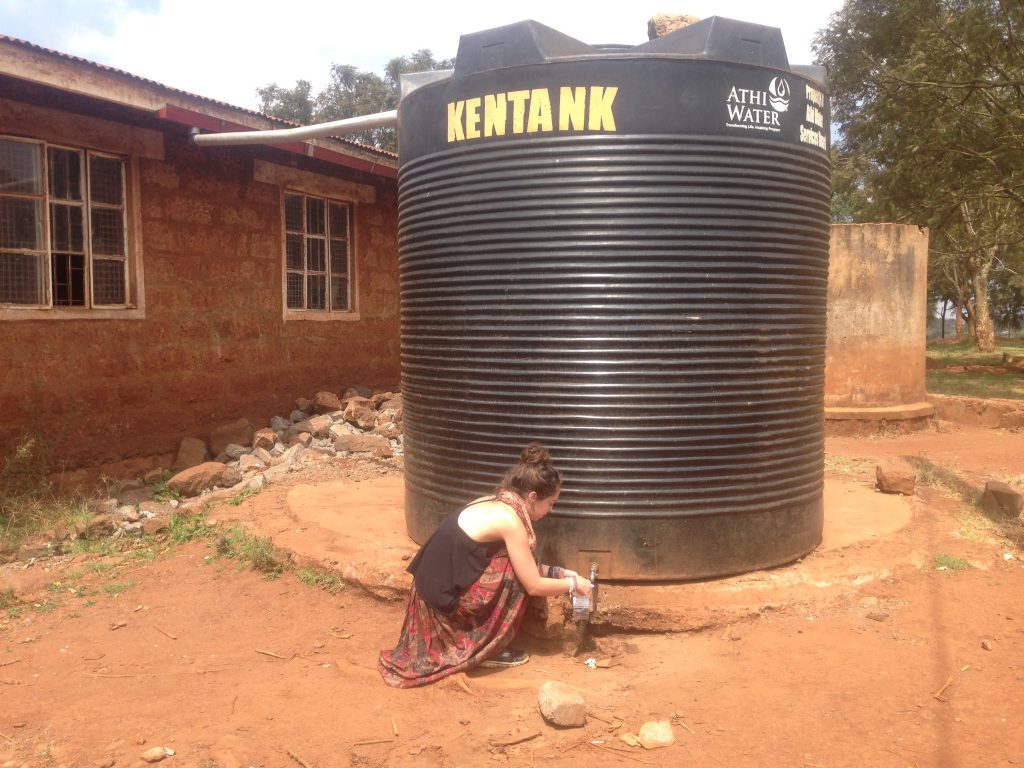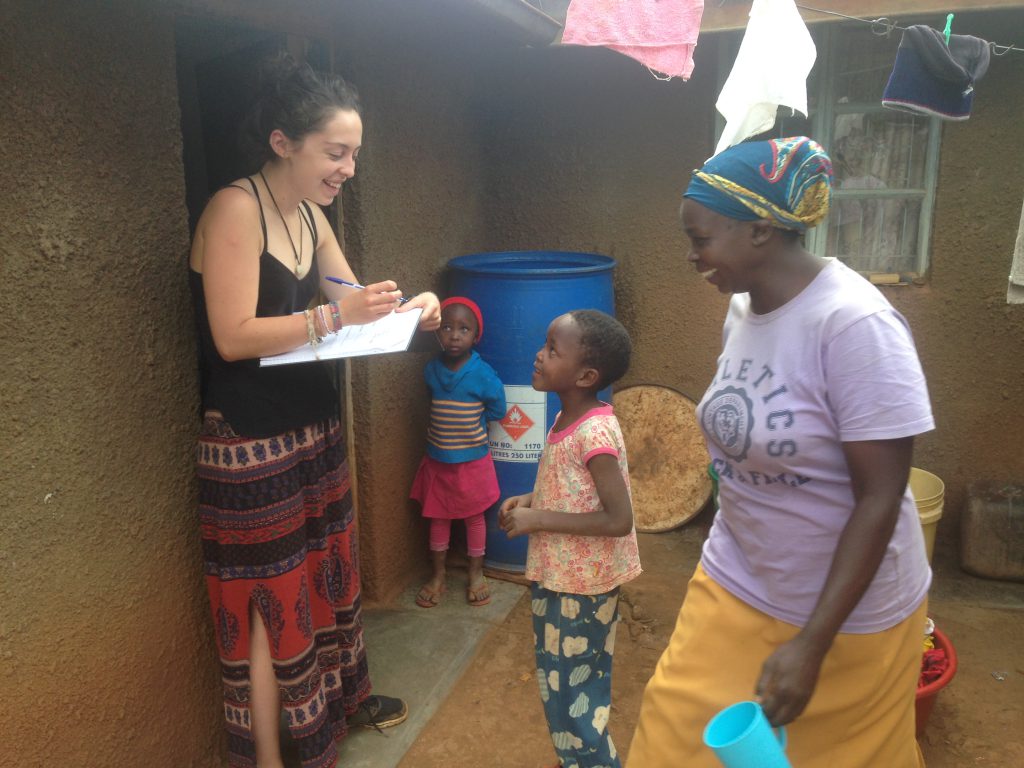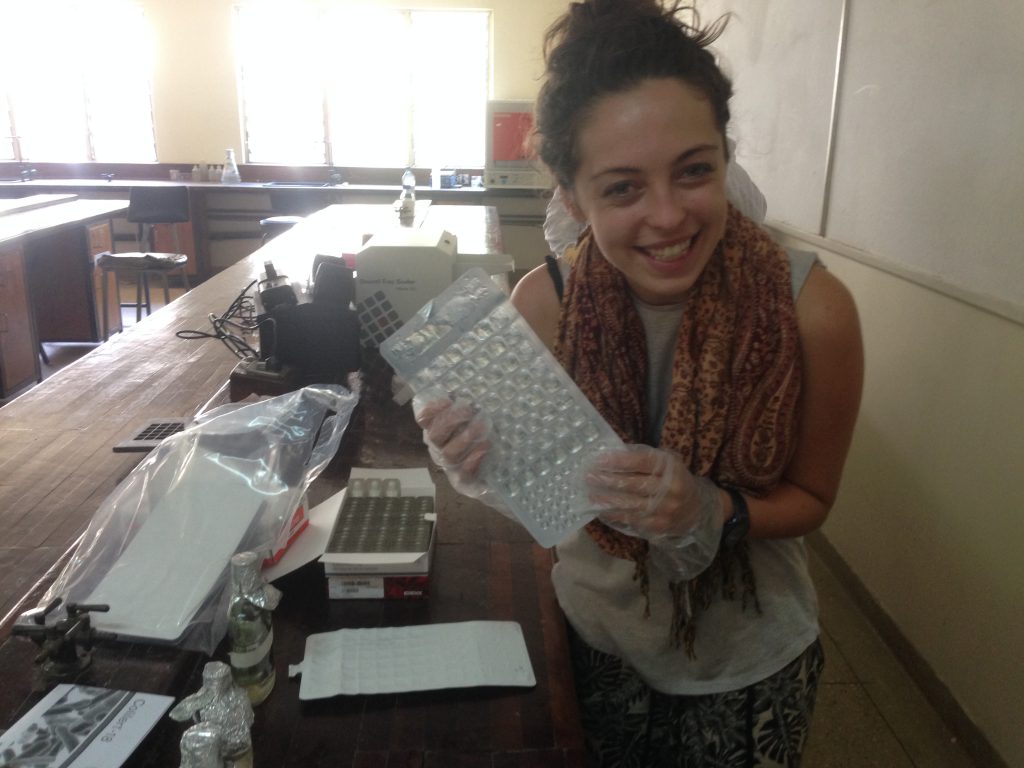Molly Byrne is a third-year BSc (Hons) Geography and Environmental Management student at UWE, who travelled to Kenya in the summer of 2015 as part of the UWE Global Water Security Project.
 As an individual who has definitely caught the travel bug, and someone who always wanted to work in development, the opportunity to spend my summer in Africa was almost impossible to resist. However, being sat on the plane about to start my adventure, the sudden panic that I may have bitten off more than I could chew suddenly hit me. This was my first time travelling on my own and I was off to Kenya…was I crazy?
As an individual who has definitely caught the travel bug, and someone who always wanted to work in development, the opportunity to spend my summer in Africa was almost impossible to resist. However, being sat on the plane about to start my adventure, the sudden panic that I may have bitten off more than I could chew suddenly hit me. This was my first time travelling on my own and I was off to Kenya…was I crazy?
However, after a truly incredible 10 weeks, which definitely had its ups and its downs, I can now say that I have had one of the most amazing summers of my life. Joining the fantastic team at Kenya Rainwater Association can definitely not be described as the standard summer internship, which mainly involves coffee fetching and admin; mine was spent visiting current project sites and being completely engulfed within the Kenyan way of life. The best aspect of my placement was the opportunity to carry out research for my dissertation in a location where my results could actually have an impact on people’s lives.
 My dissertation will look at E.coli and Total Coliform bacteria counts within rainwater harvesting tanks. The aim was to identify the main management issues that are causing bacteria levels higher than those advised by the World Health Organisation within these tanks. This was an attempt to highlight that despite having access to a water source, without proper management the water can be of such a poor quality that it is inadvisable for it to be used for human consumption. Many tank owners were completely unaware that this was an issue, believing that the water must be of perfect quality to consume as it comes from the sky, and had little knowledge of the need to maintain their tank equipment.
My dissertation will look at E.coli and Total Coliform bacteria counts within rainwater harvesting tanks. The aim was to identify the main management issues that are causing bacteria levels higher than those advised by the World Health Organisation within these tanks. This was an attempt to highlight that despite having access to a water source, without proper management the water can be of such a poor quality that it is inadvisable for it to be used for human consumption. Many tank owners were completely unaware that this was an issue, believing that the water must be of perfect quality to consume as it comes from the sky, and had little knowledge of the need to maintain their tank equipment.
The team I worked with had such vast experience it gave me the opportunity to expand my research and knowledge in ways that I would have never considered. They also gave me the opportunity to gain first hand understanding of the current water crisis facing the majority of rural residents within Kenya, and provided me with the kind of knowledge and expertise which could never have been picked up from a textbook. It also put into perspective the effect that the changing climate is having on individuals lives.
 Part of my research gave me the opportunity to work in the Kenya Water Institute water testing lab. This was a fantastic opportunity to use new water testing technology. The lab assistants gave me one on one guidance in how to use this new technology, as well as helping me with further development of my research.
Part of my research gave me the opportunity to work in the Kenya Water Institute water testing lab. This was a fantastic opportunity to use new water testing technology. The lab assistants gave me one on one guidance in how to use this new technology, as well as helping me with further development of my research.
Overall I have been lucky enough to undergo a completely unique and amazing experience, meeting some wonderful people and working within a completely new environment. Not only have I collected my dissertation data, but I have also had the opportunity to gain valuable experience of working in the field. Kenya is such a unique part of the world, and I feel incredibly lucky to have been able to spend my summer there.
